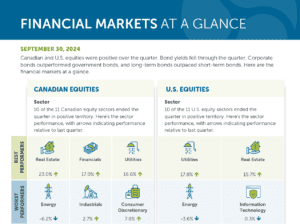5 Common Setbacks People Face When Growing Their Net Worth – Business Insider

When you buy through our links, Insider may earn an affiliate commission. Learn more.
Loading
Something is loading.
One thing I’m really curious about are the mistakes that people make when it comes to growing their money. After years of making my own mistakes around saving and planning for retirement, I’ve been able to follow a strict budget and make waves with my own financial strategy.
So as I continue to build up my wealth, I recently found myself curious about what holds people back from taking their net worth to the next level — specifically going from six figures to seven. That’s why I asked some financial advisors to share what the biggest setbacks they’ve seen clients experience trying to make it to that level.
1. Forgetting the backdoor Roth IRA option
A big part of growing your money is knowing what tools are out there that you can use to your advantage. Brian Colvert, a financial planner, said that one of the biggest mistakes he sees wealth-building clients make is not taking advantage of a Mega Backdoor Roth IRA — or not doing it sooner.
“A Mega Backdoor Roth IRA allows high-income taxpayers to create a permanently tax-free Roth IRA, even if their incomes exceed the amount for traditional Roth ownership,” said Colvert.
Colvert said that someone with a six-figure salary could use this tool to amass an IRA worth up to $10 million after a few decades of steady investing if they strategize correctly.
“Start as early as possible to realize the full power of compounding,” he added.
2. Not processing risk tolerance
When you’re building your wealth, it can be tempting to say yes to investing in the newest fad, or to a too-good-to-be-true opportunity. Billy Mondor, a financial advisor, says to be careful and to be mindful of risk.
“I can certainly understand the FOMO with all of these new crypto[currency] millionaires running around,” said Mondor. “Just remember, the success stories make headlines — you rarely hear about the failures.”
Mondor said that your “best ally” in generating wealth is simply just lots of time.
“Have an investment strategy, stick to it, and enjoy your life — stop checking the markets,” said Mondor. “Short-term fluctuations don’t matter. If you are saving money for retirement 20 years from now, why do you care that the market is down 3%?”
3. Not having proper insurance
While it might not be at the top of your mind as you’re building your net worth, Jay Zigmont, a financial planner, says it’s important to think about having the appropriate insurance coverage to protect yourself from preventable losses.
“Make sure you have appropriate auto, house, and umbrella coverage to protect your assets,” said Zigmont. “The last thing you want is an accident to put your hard-earned net worth at risk.”
However, he added that as your income continues to grow, there may be some areas where you can now take on more risk — like by adjusting your life insurance plan.
4. Avoid the temptation to spend impulsively
As you continue to grow your wealth, Christy Matzen, a financial planner, says to watch out for impulse spending because it can be a big setback.
“Breaking [seven figures] is a huge accomplishment, however allowing lifestyle creep to influence your actions will break your net worth even faster,” said Matzen. “Avoid impulsive purchases, and be thoughtful about any big changes to your lifestyle to ensure it’s what you truly want rather than what you think others expect or will be impressed by.”
5. More money means more debt
Matzen also believes one other thing that can stand in a person’s way of hitting a 7-figure net worth is by gaining additional debt.
“[After gaining more wealth] mortgages are available in larger amounts, lines of credit are more inviting and it’s easy to get caught up in the appeal,” said Matzen. “Maintain a debt-to-income ratio under 30% as a best practice to guard against getting over leveraged.”
More Financial Planner Coverage






